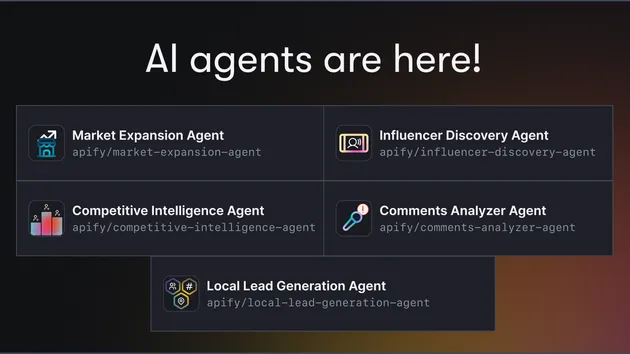Competitive Intelligence Agent
Pricing
$7.00 / 1,000 single competitor ai analyses
Competitive Intelligence Agent
An AI-powered competitive intelligence tool that extracts and analyzes data from Google Maps and social media to uncover competitor strengths, customer sentiment, and market gaps.



